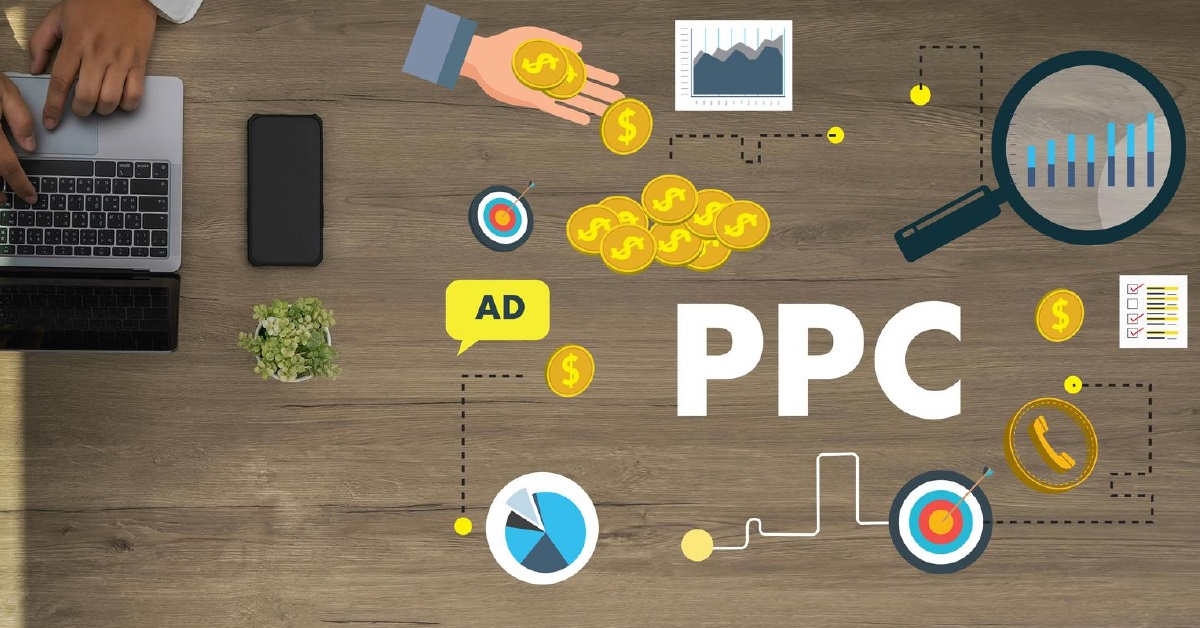10 min read
Introduction to Content Marketing
- Content marketing is a strategic approach to creating and distributing valuable, relevant, and consistent content to attract and retain a clearly defined audience.
- A well-planned content marketing strategy helps businesses achieve their goals by driving profitable customer action.
- Effective content marketing strategies involve understanding the target audience, creating high-quality content, and distributing it through various channels.
- Content marketing aims to build trust, establish thought leadership, and generate leads by providing helpful and informative content.
- Successful content marketing strategies help lower customer acquisition costs by cultivating ongoing relationships with customers.
- A complete content marketing guide should include a content marketing definition, content marketing strategies, and a plan for measuring success.
Table of Contents
Understanding Content Marketing
- Content marketing is an inbound marketing approach that focuses on creating and sharing valuable content to attract and engage potential customers.
- It involves understanding the customer journey and creating content that addresses their needs and concerns at each stage. Blog posts are a cornerstone of content marketing that drive traffic, generate leads, and establish authority in your industry.
- Content marketing strategies should be aligned with business goals and objectives, such as generating leads, driving sales, and increasing brand awareness.
- Social media marketing is an essential part of content marketing, as it allows businesses to reach and engage with their target audience on various social media platforms.
- Search engine optimization (SEO) is also crucial for content marketing, as it helps businesses rank higher in search engines and increase their organic traffic.
Content Creation

- Creating high-quality, engaging, and informative content is critical for effective content marketing.
- Content formats can vary, including blog posts, video content, social media posts, email marketing, and more. Diverse content formats include blog posts, videos, infographics, and podcasts to engage different audience segments.
- Developing a content strategy that includes a mix of content formats and channels can help businesses reach and engage with their target audience.
- Content creation should be focused on providing valuable insights and helpful information to the target audience, rather than just promoting products or services.
- User-generated content can also be a powerful tool for content marketing, as it allows businesses to showcase their customers’ experiences and build trust with potential customers.
- Savvy content marketers understand the importance of diversifying content types to cater to different preferences within their audience. For example, incorporating interactive elements such as quizzes, polls, or webinars can enhance engagement and provide unique value.
- Additionally, integrating storytelling techniques into content creation helps humanize the brand, making it easier for the audience to connect emotionally and remember the message.
Content Strategy

- A well-planned content strategy is essential for effective content marketing.
- It should include a clear definition of the target audience, content formats, and distribution channels.
- Content marketers should identify content gaps and opportunities to create content that addresses the needs and concerns of their target audience.
- A documented strategy should include a plan for creating, publishing, and promoting content, as well as measuring and evaluating its success.
- Social media platforms can be used to distribute content and engage with the target audience, and email marketing can be used to nurture leads and drive conversions.
- Developing content that aligns with the buyer’s journey ensures that prospects receive the right information at the right time, facilitating smoother transitions from awareness to purchase.
- Effective content strategies also incorporate competitive analysis, enabling businesses to benchmark against industry experts and identify unique angles to differentiate their offerings.
Content Distribution
- Content distribution is a critical component of content marketing, as it allows businesses to reach and engage with their target audience.
- Social media platforms, email marketing, and search engines are all important channels for content distribution.
- Social media content is critical for audience engagement, and ad spending in the social media market is projected to reach $219.8 billion in 2024. Video content is engaging and versatile, with 91% of content marketers using it as a core marketing tool and 78% planning to increase production in 2024.
- Businesses should use a variety of channels to distribute their content, including their website, blog, and social media platforms.
- Paid ads can also be used to promote content and reach a wider audience, but they should be used in conjunction with organic content marketing efforts.
- Evergreen content can be used to drive traffic and generate leads over time, and it should be optimized for search engines to increase its visibility.
- To maximize reach, content marketers should consider cross-promoting content on other sites and collaborating with influencers or partners who can amplify their message.
- Tracking the performance of different distribution channels helps businesses allocate content marketing budgets more effectively, ensuring resources are invested where they yield the best return.
Content Marketing Tools
- There are many tools available to help businesses with their content marketing efforts, including content management systems, social media scheduling tools, and SEO optimization tools.
- Content marketers should use these tools to streamline their content creation and distribution processes, and to measure and evaluate the success of their content marketing efforts.
- A content marketing platform can be used to manage and optimize content marketing efforts, and to provide valuable insights and analytics.
- Using a project management platform can help organize and scale your content marketing strategy. Email marketing boasts a significant average return on investment (ROI) of $36 for every dollar spent, making it a highly efficient strategy.
- Businesses should choose tools that align with their content marketing strategy and goals, and that provide the functionality and support they need to succeed.
- Incorporating tools that facilitate collaboration among team members and industry experts can enhance content quality and innovation.
- Automation tools can also help in scheduling social media content, sending email campaigns, and monitoring engagement metrics, freeing up time for creative tasks.
Measuring Content Marketing Success
- Measuring the success of content marketing efforts is critical, as it allows businesses to evaluate the effectiveness of their strategy and make data-driven decisions.
- Key performance indicators (KPIs) such as website traffic, engagement, leads, and conversions should be used to measure the success of content marketing efforts.
When it comes to executing your content marketing strategy, choosing the right partner is critical. While freelancers may seem like a cost-effective option, they often come with significant limitations that can hinder your business growth. Freelancers typically have limited expertise, focusing on one or two areas, which can result in inconsistent results and a lack of comprehensive strategy. Additionally, relying on a single individual means your project is vulnerable to delays or disruptions if that person becomes unavailable. Accountability is another major concern—freelancers may not have the structures in place to ensure consistent quality and timely delivery.
In contrast, partnering with a professional digital marketing agency like Varun Digital Media offers clear advantages. Our agency brings together a diverse team of experts specializing in SEO, PPC, social media marketing, and web development, ensuring all aspects of your content marketing efforts are covered with precision and depth. We follow proven processes and leverage advanced tools to optimize your campaigns, deliver measurable results, and adapt strategies based on real-time data. With Varun Digital Media, you gain a reliable partner committed to your long-term growth, backed by accountability and scalable solutions tailored to your business needs.
Ready to elevate your content marketing and digital presence? Partner with Varun Digital Media today for expert SEO, PPC, social media, and web development services that drive results and growth. Contact us now to schedule a consultation and discover how our team can transform your marketing efforts.
- Businesses should use analytics tools to track their KPIs and adjust their content marketing strategy accordingly.
- A/B testing and experimentation can be used to optimize content marketing efforts and improve their effectiveness.
- Content marketers should regularly review and adjust their strategy to ensure it is aligned with their business goals and objectives.
- Incorporating conversion rate optimization techniques can significantly improve the performance of content marketing campaigns by refining user experiences and call-to-action placements.
- Providing a helpful resource, such as downloadable guides or templates, can also encourage audience interaction and lead generation.
Content Marketers
- Content marketers play a critical role in developing and implementing a content marketing strategy.
- They should have a deep understanding of the target audience, content formats, and distribution channels.
- Content marketers should be skilled in creating high-quality, engaging, and informative content, and in using analytics tools to measure and evaluate the success of content marketing efforts.
- They should also be able to develop a content strategy that aligns with business goals and objectives, and that provides valuable insights and helpful information to the target audience.
- Content marketers should stay up-to-date with the latest trends and best practices in content marketing, and should be able to adapt their strategy to changing market conditions.
- Successful content marketers often allocate ad space strategically within their content to subtly promote products or services without detracting from the overall value offered.
- Building relationships with existing customers through personalized content helps foster loyalty and encourages repeat business.
Choosing Varun Digital Media means entrusting your content marketing to a team that not only understands these critical roles but excels in executing them. Unlike freelancers, our agency offers the scalability and reliability essential for sustained success. We provide dedicated account management, transparent reporting, and ongoing optimization to ensure your campaigns deliver consistent, measurable growth.
Don’t settle for unpredictable freelancer results. Make the smarter choice with Varun Digital Media — your trusted partner for scalable, accountable, and expert-driven digital marketing solutions. Reach out today to learn more about how we can help you generate more leads, increase conversions, and build a loyal audience through comprehensive SEO, PPC, social media marketing, and web development services.
Overcoming Content Marketing Challenges

- Content marketing can be challenging, especially for businesses that are new to it.
- Common challenges include creating high-quality content, reaching and engaging with the target audience, and measuring the success of content marketing efforts.
- Businesses should use a variety of tactics to overcome these challenges, including developing a clear content strategy, using social media and email marketing to distribute content, and optimizing content for search engines.
- Content marketers should also be prepared to adapt their strategy to changing market conditions, and to stay up-to-date with the latest trends and best practices in content marketing.
- By providing valuable insights and helpful information to the target audience, businesses can build trust and establish thought leadership in their industry.
- Quality content acts as an ongoing advertisement for a brand, driving sales over time.
- Leveraging detailed descriptions in content helps clarify complex topics and improves search engine rankings.
- Avoiding reliance solely on traditional ads ensures that content marketing efforts remain authentic and resonate better with audiences.
At Varun Digital Media, we understand these challenges intimately and have developed robust strategies and workflows to overcome them efficiently. Our team stays ahead of industry trends and continuously refines tactics to ensure your content marketing stays effective and competitive. With our agency’s support, you can focus on your core business while we handle the complexities of content creation, distribution, and performance measurement.
Experience the difference a professional agency can make. Contact Varun Digital Media now to discuss your content marketing challenges and learn how our expert team can deliver consistent, high-quality results that freelancers simply cannot match.
Future of Content Marketing
- The future of content marketing is exciting, with new trends and technologies emerging all the time.
- Video content, audio content, and interactive content are all becoming increasingly popular, and businesses should be prepared to incorporate these formats into their content marketing strategy.
- Artificial intelligence and machine learning are also being used to optimize content marketing efforts, and businesses should be prepared to leverage these technologies to improve their content marketing effectiveness. By 2024, 44% of marketers are expected to use AI in their content creation process.
- The importance of mobile devices and social media platforms will continue to grow, and businesses should be prepared to optimize their content for these channels.
- By staying up-to-date with the latest trends and best practices in content marketing, businesses can stay ahead of the competition and achieve their marketing goals.
- Content marketing will increasingly incorporate niche interests such as extreme sports or other specialized topics to attract more customers and build passionate communities.
- Savvy content marketers will continue to innovate by integrating social media content and collaborating with industry experts to expand their reach and credibility.
Varun Digital Media is at the forefront of these evolving trends, equipped with cutting-edge tools and a forward-thinking team ready to help your business capitalize on new content marketing opportunities. From AI-powered analytics to multi-channel campaign management, our agency ensures your marketing efforts are both innovative and effective.
Don’t let your business fall behind in the fast-changing digital landscape. Partner with Varun Digital Media for a scalable, accountable, and expert-driven approach to SEO, PPC, social media marketing, and web development that future-proofs your growth. Contact us today to get started.
- Key performance indicators (KPIs) such as website traffic, engagement, leads, and conversions should be used to measure the success of content marketing efforts.
- Businesses should use analytics tools to track their KPIs and adjust their content marketing strategy accordingly.
- A/B testing and experimentation can be used to optimize content marketing efforts and improve their effectiveness.
- Content marketers should regularly review and adjust their strategy to ensure it is aligned with their business goals and objectives.
- Incorporating conversion rate optimization techniques can significantly improve the performance of content marketing campaigns by refining user experiences and call-to-action placements.
- Providing a helpful resource, such as downloadable guides or templates, can also encourage audience interaction and lead generation.
Looking for consistent, ROI-driven content marketing?
Partner with Varun Digital Media today.
Frequently Asked Questions (FAQs) About Content Marketing
1. What is content marketing?
Content marketing is a strategic approach focused on creating and distributing valuable, relevant, and consistent content to attract and retain a clearly defined audience, ultimately driving profitable customer action.
2. Why is content marketing important for businesses?
Content marketing helps businesses build trust with their audience, establish thought leadership, generate more leads, and support business growth by providing helpful content that addresses customer needs throughout the buyer’s journey.
3. What types of content are commonly used in content marketing?
Common content formats include blog posts, video content, social media posts, email marketing, podcasts, infographics, and long form content such as white papers or ebooks.
4. How does content marketing support the sales process?
By delivering relevant content at each stage of the customer journey—from awareness to consideration and decision—content marketing nurtures leads, educates potential customers, and helps convert them into loyal customers.
5. How can businesses measure the success of their content marketing efforts?
Success can be measured using key performance indicators (KPIs) such as website traffic, engagement rates, lead generation, conversion rates, and customer retention metrics.
6. What role does SEO play in content marketing?
Search engine optimization (SEO) improves the visibility of digital content in search results, helping attract organic traffic and ensuring that content reaches the right audience effectively.
7. How often should businesses publish content?
Consistency is key. Developing a sustainable content calendar that aligns with business goals and resources helps maintain a steady flow of engaging content for the target audience.
8. Can content marketing provide a competitive advantage?
Yes, a well-executed content marketing strategy helps businesses develop relationships with ideal customers, build a loyal audience, and stand out as an industry leader in their market.
9. What challenges do businesses face with content marketing?
Common challenges include creating high-quality engaging content, reaching and engaging the target audience, maintaining consistency, and accurately measuring ROI.
10. How is content marketing evolving?
Content marketing is increasingly incorporating video and audio content, leveraging artificial intelligence for optimization, and focusing on personalized experiences across different platforms and mobile devices.
Published: September 23rd, 2025











